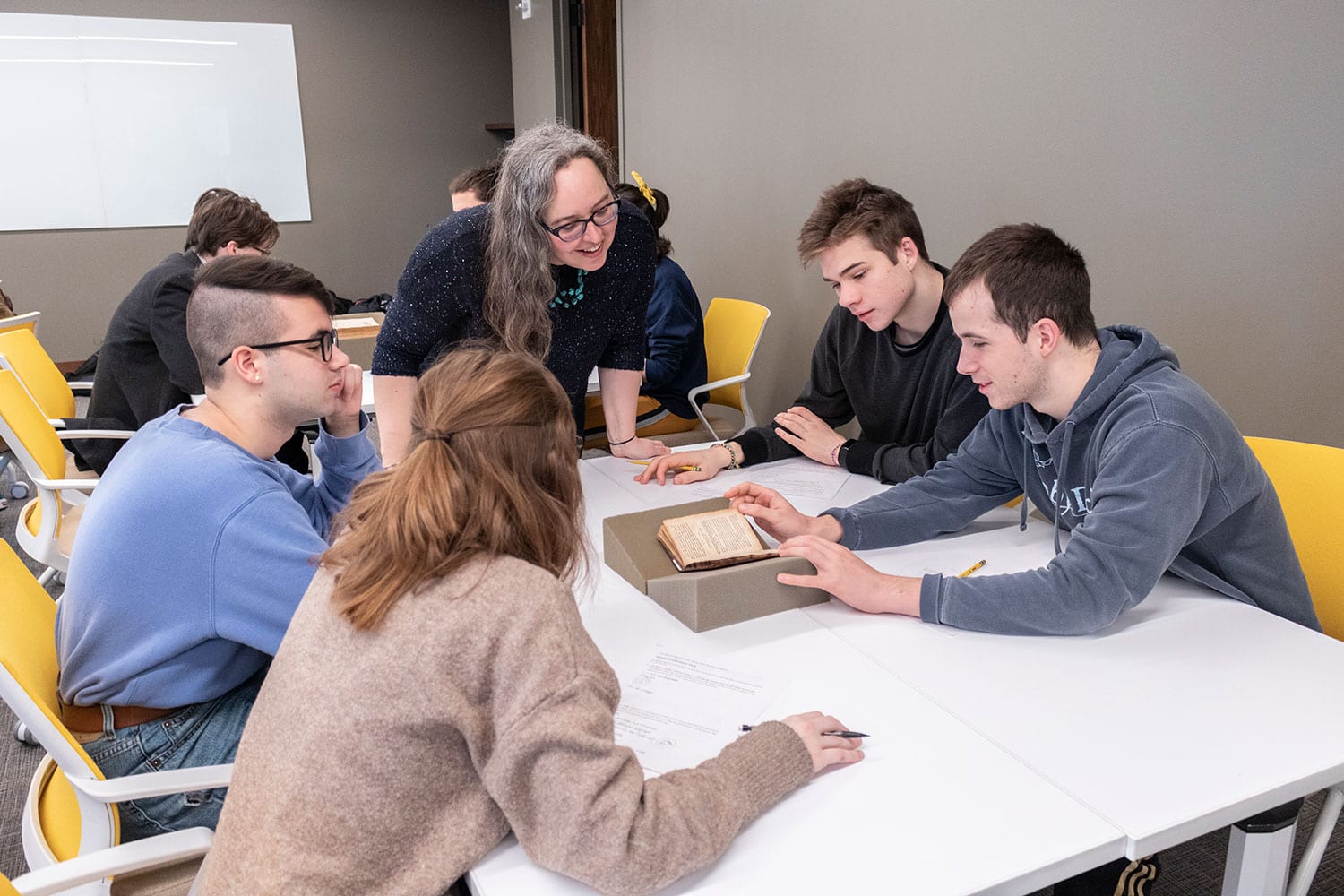Course Title: “Clinical Psychopharmacology”
Taught By: Visiting Assistant Professor of Psychology Samantha Fortin
Says Fortin:
“Clinical Psychopharmacology” is an exploration of the application of drugs to treat mental health disorders and diseases of the brain. The course begins with the foundations of pharmacology and the drug-development process before transitioning to how pharmacotherapies are used to treat psychiatric disorders. We cover the history of drug development, ethics, FDA regulation, the successes and failures of pharmaceutical attempts in psychiatry, and drug-free alternative strategies for treating mental health. The class intentionally moves very fast. I view it as an opportunity to plant a whole bunch of seeds, and I know from experience that there is variability in the things that “stick” with individual students.
I tell my students that my main goal of my teaching is for some of the things that I teach them to make their way into conversations with grandma or at a party. In all seriousness, I want my students to leave with an increased understanding of how the brain is wired and how drugs act on that circuitry to change behavior. However, I also want them to appreciate just how much we DON’T know. There is a misconception that prescription drugs are well understood in terms of how they do what they do. The truth is that we have so much to learn and figuring it out is the key to developing more effective pharmacotherapies with fewer side effects.
Psychopharm is such a fun class to teach! It is multidisciplinary, involves the application of cutting-edge techniques, and requires me to stay up to date with current events because new drugs (and drug scandals) are always popping up. Also, teaching psychopharmacology has allowed me to find a way to teach hard science while also reflecting on humanity. We discuss the neurobiological basis of diseases and disorders that are inescapably relevant to college students (e.g., anxiety, depression, substance abuse) and the sobering realities of our treatment options. I think that these conversations help reframe conditions that are still stigmatized in our society and help create more conscious, informed and compassionate citizens.
I also like that my course helps educate current and future consumers of pharmaceuticals. Through examples, I hope to provide a heathy level of skepticism of both the pharmaceutical industry and the FDA. Through teaching the scientific method and critical evaluation of primary literature, I hope to arm students with the tools necessary to critically evaluate the world.
My “day job” involves conducting psychopharmacology research as a postdoctoral fellow at the University of Pennsylvania, Department of Psychiatry. This year my class is going on a field trip to Philly to see how this highly productive lab functions. We will have the opportunity to see how drugs are tested, hear about the ongoing research studies and interview scientists. So much of science HAS to be lecture-based (in my opinion), but it is fun when you find a different way to teach. Another example of this is when my Psychopharm students teach each other with presentations of drug commercials that they create. These short video clips, often featuring friends and family, provide a platform for students to connect socially and apply their creative abilities to science. The submissions I get for this assignment represent just one of the ways that Haverford students continue to impress me!
Learn more about other courses offered by the Department of Psychology.

